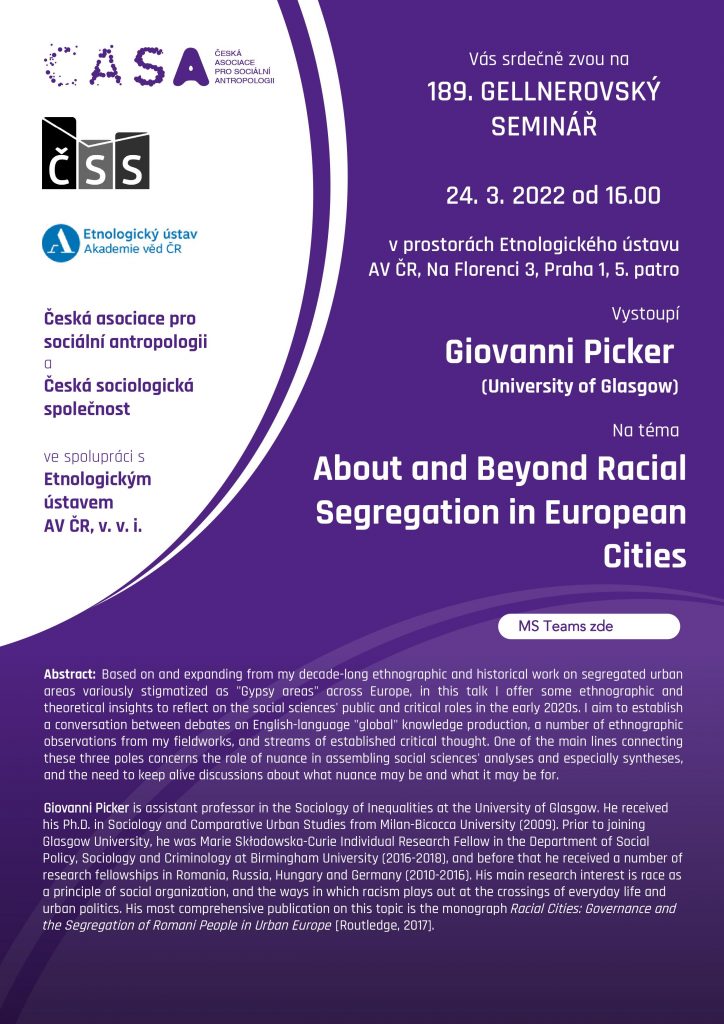
odkaz pro připojení přes Zoom naleznete v PDF souboru
Abstract
Based on and expanding from my decade-long ethnographic and historical work on segregated urban areas variously stigmatized as „Gypsy areas“ across Europe, in this talk I offer some ethnographic and theoretical insights to reflect on the social sciences‘ public and critical roles in the early 2020s. I aim to establish a conversation between debates on English-language „global“ knowledge production, a number of ethnographic observations from my fieldworks, and streams of established critical thought. One of the main lines connecting these three poles concerns the role of nuance in assembling social sciences‘ analyses and especially syntheses, and the need to keep alive discussions about what nuance may be and what it may be for.
Bio
Giovanni Picker is assistant professor in the Sociology of Inequalities at the University of Glasgow. He received his Ph.D. in Sociology and Comparative Urban Studies from Milan-Bicocca University (2009). Prior to joining Glasgow University, he was Marie Skłodowska-Curie Individual Research Fellow in the Department of Social Policy, Sociology and Criminology at Birmingham University (2016–2018), and before that he received a number of research fellowships in Romania, Russia, Hungary and Germany (2010–2016). His main research interest is race as a principle of social organization, and the ways in which racism plays out at the crossings of everyday life and urban politics. His most comprehensive publication on this topic is the monograph Racial Cities: Governance and the Segregation of Romani People in Urban Europe [Routledge, 2017].